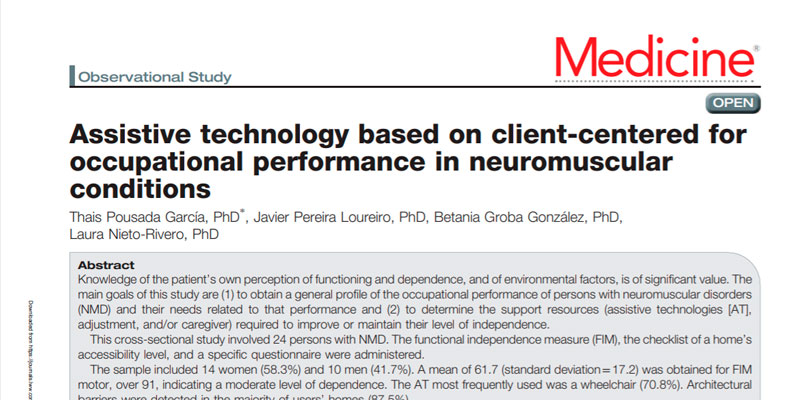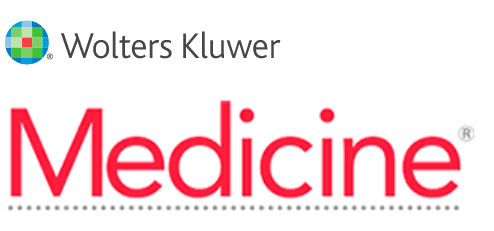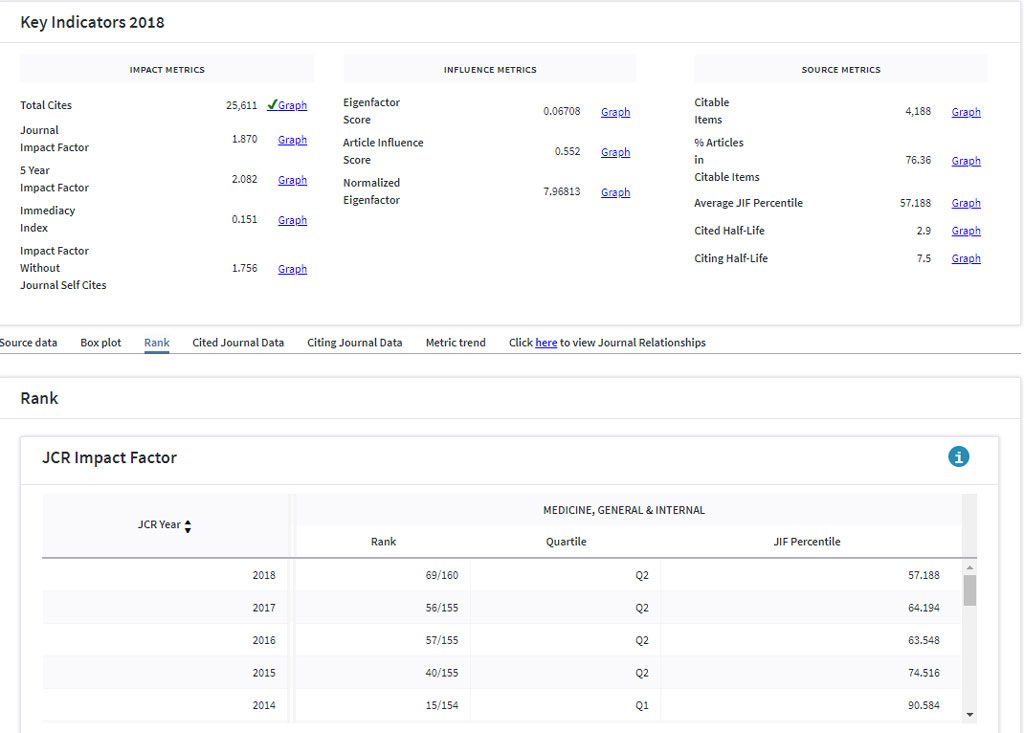Pousada García, Thais PhD*; Loureiro, Javier Pereira PhD; González, Betania Groba PhD; Nieto-Rivero, Laura PhD
Section Editor(s): Enix., DennisMedicine: June 2019 – Volume 98 – Issue 25 – p e15983
Knowledge of the patient’s own perception of functioning and dependence, and of environmental factors, is of significant value. The main goals of this study are (1) to obtain a general profile of the occupational performanceof persons with neuromuscular disorders (NMD) and their needs related to that performance and (2) to determine the support resources (assistive technologies [AT], adjustment, and/or caregiver) required to improve or maintain their level of independence.
This cross-sectional study involved 24 persons with NMD. The functional independence measure (FIM), the checklist of a home’s accessibility level, and a specific questionnaire were administered.
The sample included 14 women (58.3%) and 10 men (41.7%). A mean of 61.7 (standard deviation = 17.2) was obtained for FIM motor, over 91, indicating a moderate level of dependence. The AT most frequently used was a wheelchair (70.8%). Architectural barriers were detected in the majority of users’ homes (87.5%).
Concise assessment of the independence needs of people with NMD, according to their occupational performance, and prescription of resources to meet those needs are required. This procedure should be implemented in healthcare programs, including care to a caregiver.
Medicine: June 2019 - Volume 98 - Issue 25 - p e15983 doi: 10.1097/MD.0000000000015983



